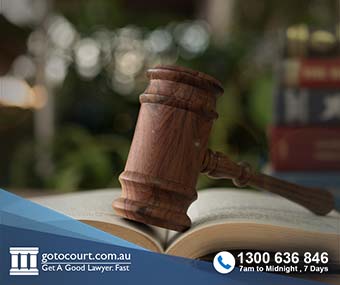Making a Will (NSW)
Making a will in New South Wales involves making a written declaration describing how your property will be disposed of after your death. This allows you to leave your assets and any other possessions to which you are entitled at the time of your death to nominated beneficiaries. When a person dies without a will, their property is disposed of based on a statutory formula.
Upon your death, the executor you have specified in your will applies to the Supreme Court for probate, meaning they will receive title to your property and dispose of it in accordance with your will.
The legal requirements for making a will in New South Wales are strict; it is recommended that you have a lawyer assist you with writing your will. The NSW Trustee & Guardian, a government body, will write your will for free for you if you appoint them as your executor, in which case they will charge fees for administering your estate.
The rules for making a will in New South Wales are contained in the Succession Act 2006.
Legal requirements for making a will in New South Wales
If you do not have a valid will, you will die as an ‘intestate‘. This means your property will be distributed amongst your relatives (or to the State itself) based on a formula in the Succession Act 2006 (NSW).
You must satisfy a number of legal requirements when making a will in New South Wales in order for your will to be valid. If you do not satisfy all of these requirements, the Supreme Court may still conclude that a document is your will if, having regard to any evidence relating to the execution of that document or your testamentary intentions, it is satisfied that you intended for that document to be your will. The requirements are:
- you must be at least 18 years of age. Minors can make a will if they are married or the Supreme Court authorises them to make a will, which it will only do if it is satisfied they understand what a will is, the proposed will reflects their intentions, and it is reasonable to allow the will to be made.
- the will must be in writing and signed by you.
- two witnesses must have watched you sign the will, and have also attested and signed the will themselves.
- you must have ‘testamentary capacity’ to prepare a will, meaning you understand the effect of a will, you know what assets you own, you do not have a mental health issue affecting your ability to make rational decisions and you know who would likely expect to be named in your will as a beneficiary. If you do not have ‘testamentary capacity’, then the Supreme Court can order a will to be made on your behalf.
Creating testamentary trusts
When making a will in New South Wales, you can provide for the creation of testamentary trusts, typically with your executor acting as the trustee. This can be done as an alternative to making outright (‘specific’) gifts to your nominated beneficiaries.
You can nominate which of your assets are held on trust for the benefit of your nominated beneficiary. The terms of a testamentary trust may then provide for the trustee to distribute the income and/or the capital from the trust to your beneficiaries.
The legal title to the assets held on trust does not pass to the beneficiary. This helps protect your assets (for example, from the creditors of beneficiaries) and has tax advantages.
Choosing your executor
The executor appointed under your will manages your estate for you after you die, which includes tasks such as organising your funeral, collecting your assets and distributing them to your creditors and your beneficiaries. They are subject to numerous legal obligations both under the common law and under statute, including the Trustee Act 1925 (NSW). For example, executors are obliged under the common law to ‘get in’ your assets and pay expenses before distributing the residue in accordance with your will.
Your executor can be a friend, a relative or a professional executor entity like the NSW Trustee & Guardian. Your solicitor can also act as your executor, but they are subject to legal professional standards and as such may be reluctant to agree to the appointment.
You should consider your proposed executor’s age, willingness to take care of your estate, relationship with the beneficiaries and ability to carry out the duties of an executor before appointing them.
How does marriage affect my will?
If you get married after making a will in New South Wales, your will is revoked. However, if it is stated in the will that it was prepared in contemplation of your marriage, then it will not be revoked. Distributions to your spouse at the time of your death will also not be revoked.
Divorce will not result in your will being revoked; however, those parts of your will providing for distributions to be made to your former spouse, or appointing your former spouse as an executor, trustee or guardian will be revoked (provided there is nothing to suggest a contrary intention).
Children
If you have children who are under 18, you can appoint somebody in your will to be their guardian after you die. Children can also be appointed as executor of your will, but if they are less than 18 years of age when you die, then administration of the will may be granted to their guardian.
If you have multiple executors and one is a minor, the grant will be made to the other executors and the minor can apply for probate once they reach 18 years of age.
If you have children and do not make a valid will, your whole estate will pass to your children equally if you do not have a spouse. If you also have a spouse, and those children are the children of your spouse, then your spouse is entitled to your whole estate.
What if I don’t nominate certain family members as beneficiaries?
You are not legally required to nominate members of your family as your beneficiaries. However, if you do not nominate someone who is a close member of your family or a person with whom you had a de facto relationship in your will, they may apply to the Supreme Court for a ‘family provision order’ for further provision from your estate.
Such an order generally cannot be made in relation to property that has already been distributed by your executor.
If you require legal advice or representation in any legal matter, please contact Go To Court Lawyers.




